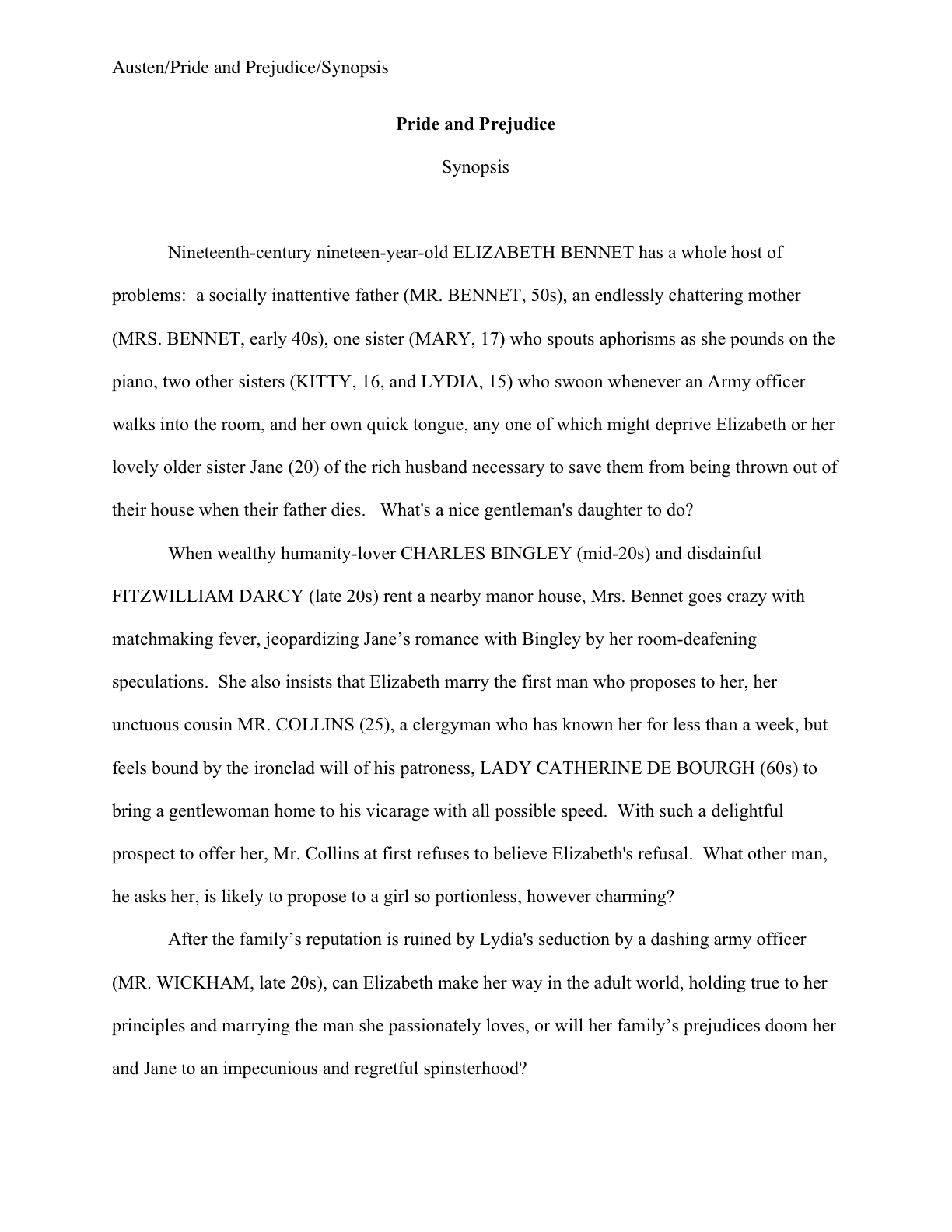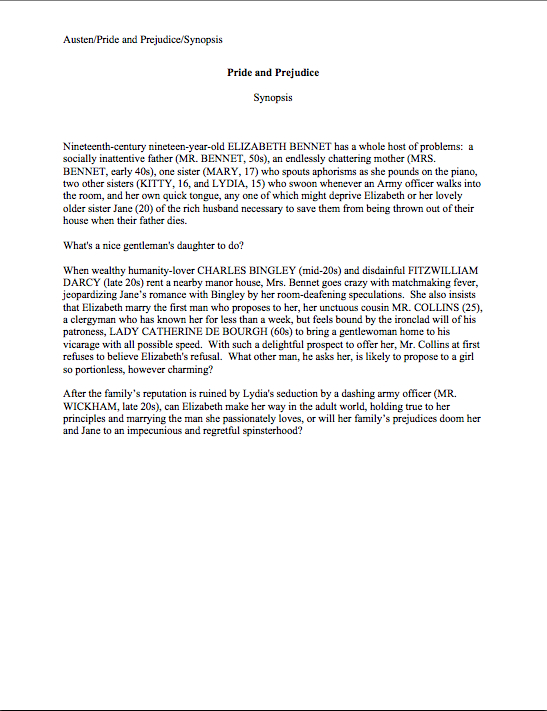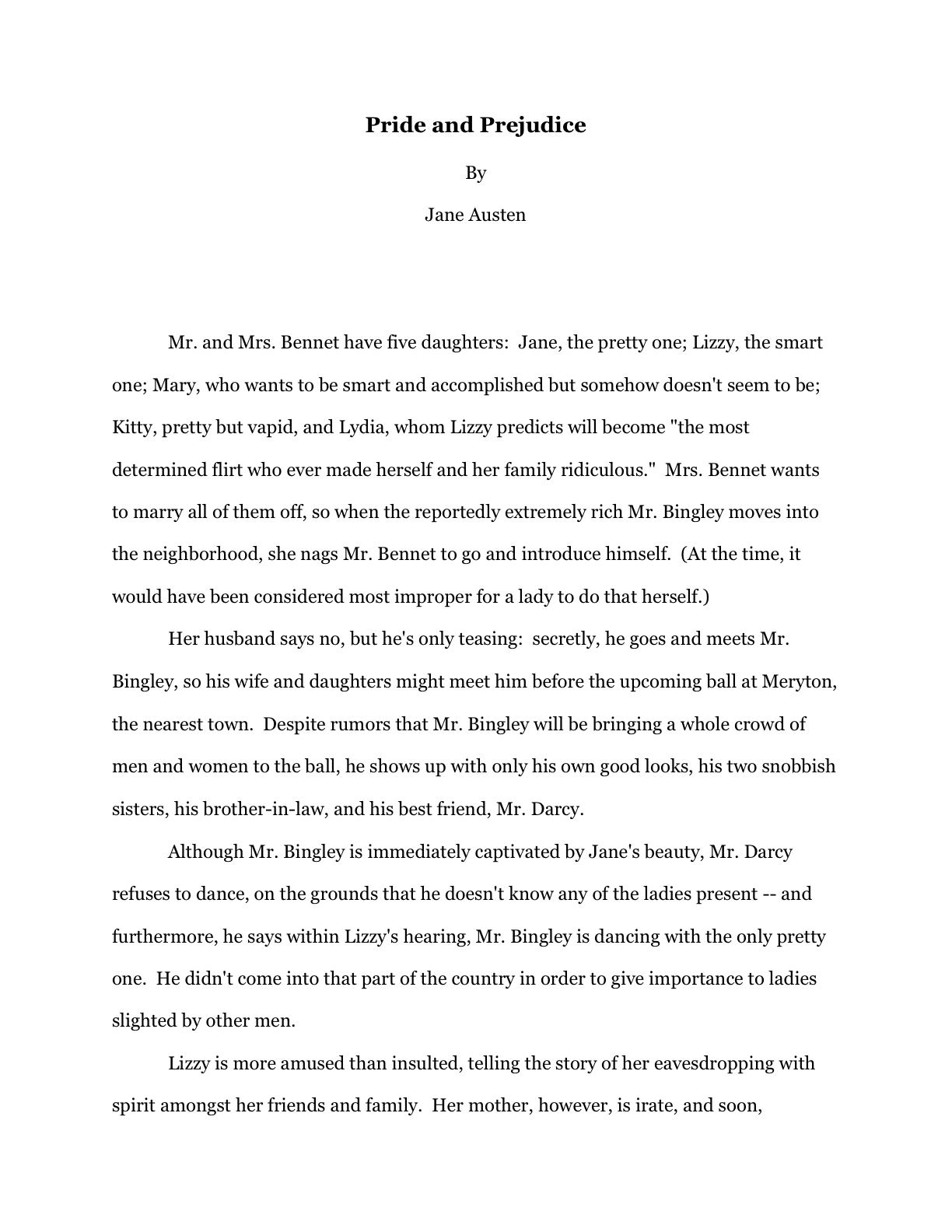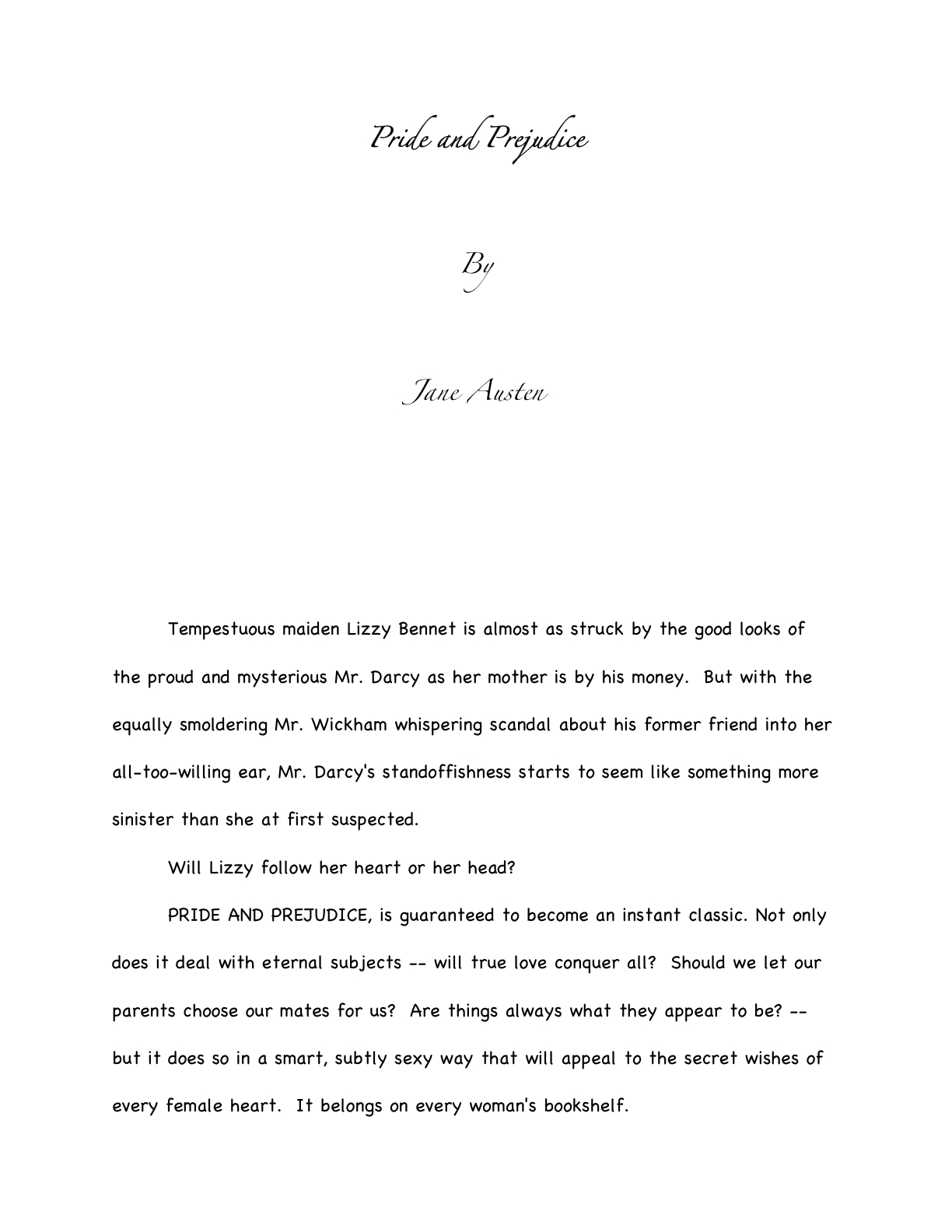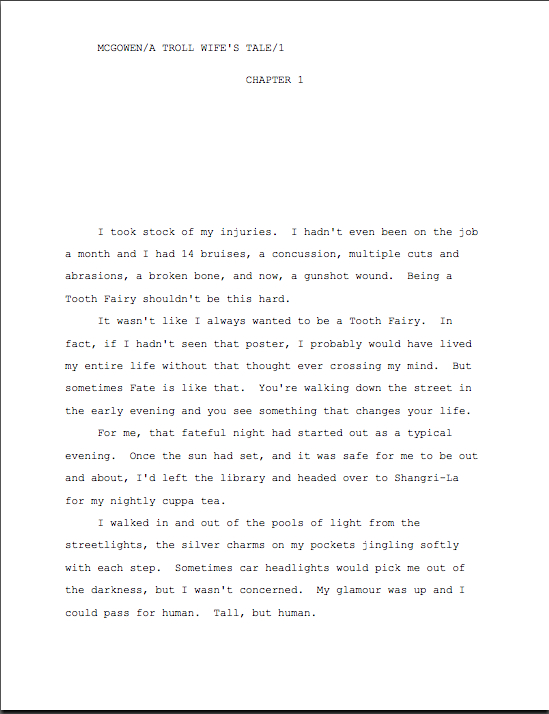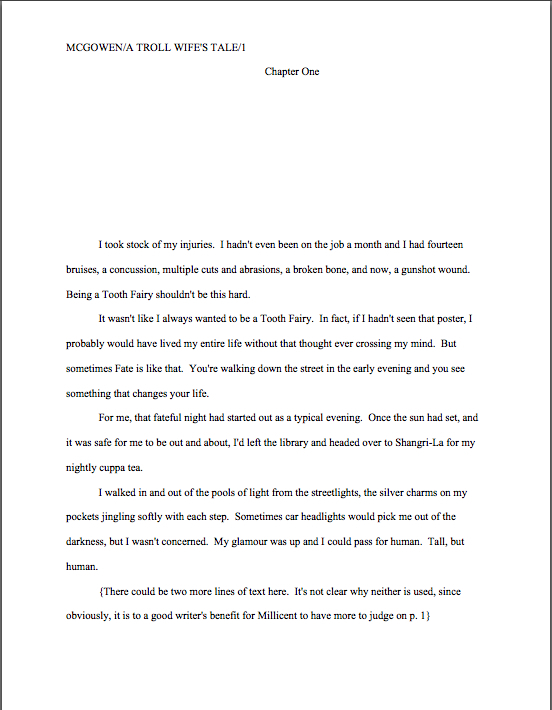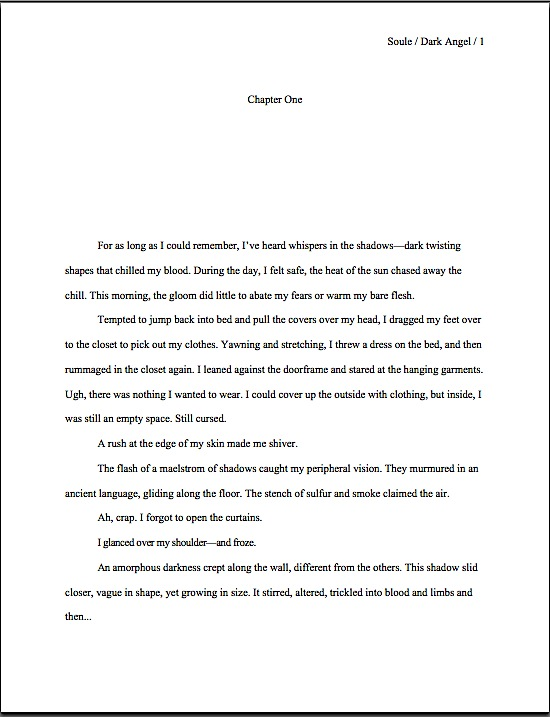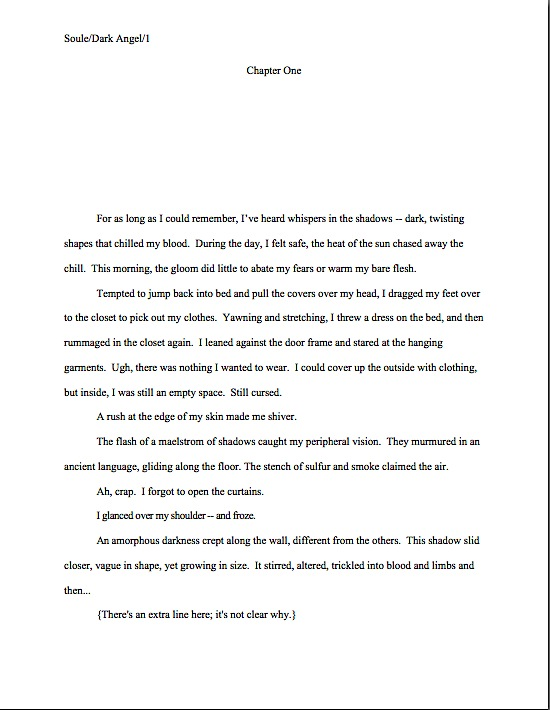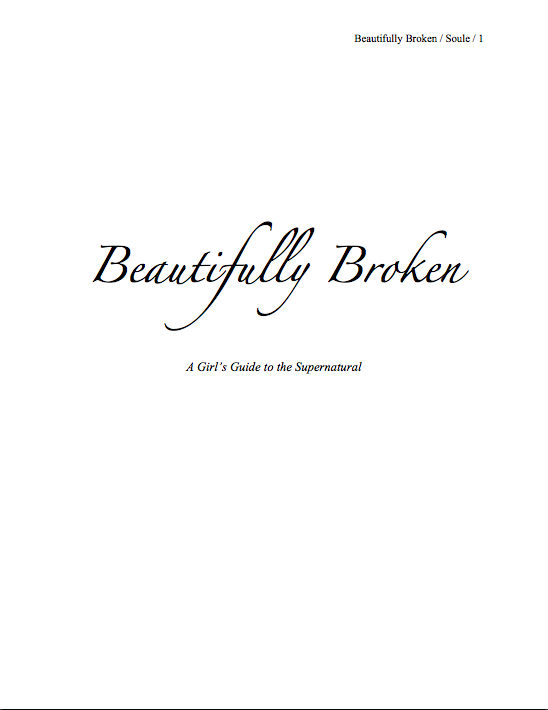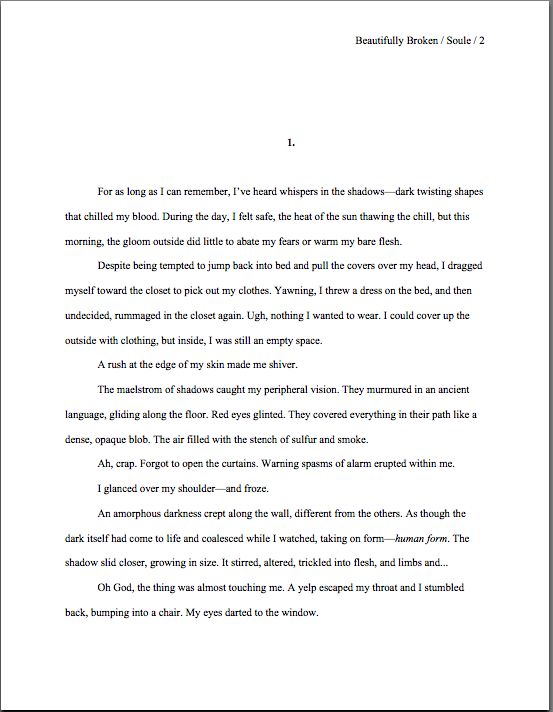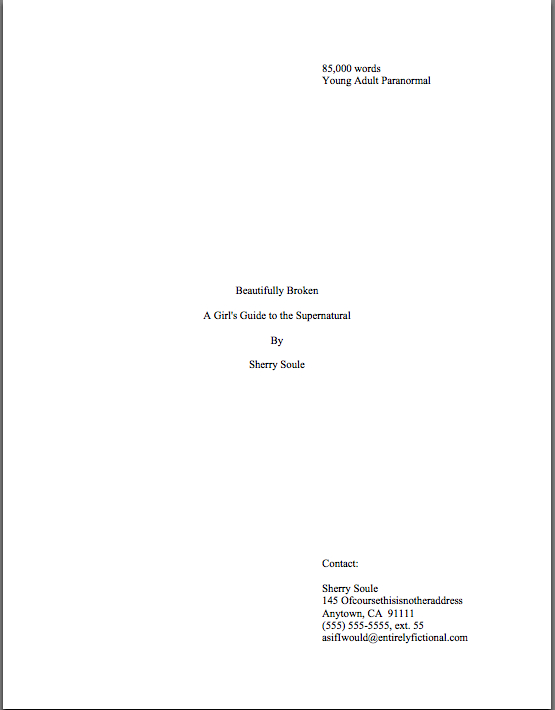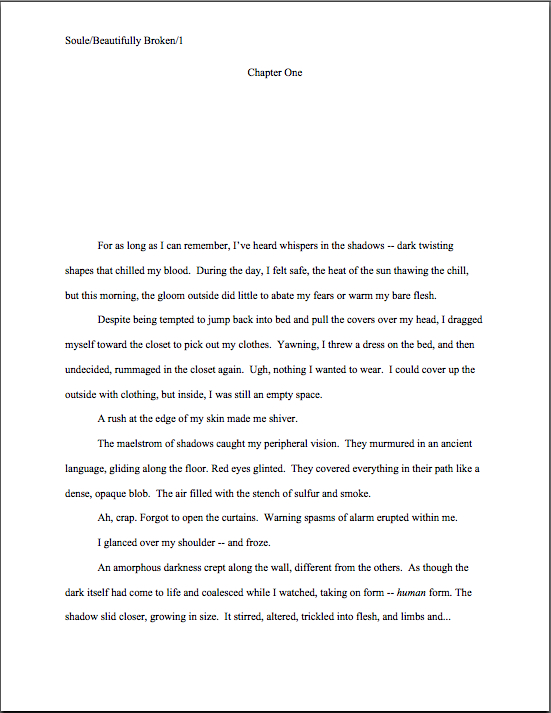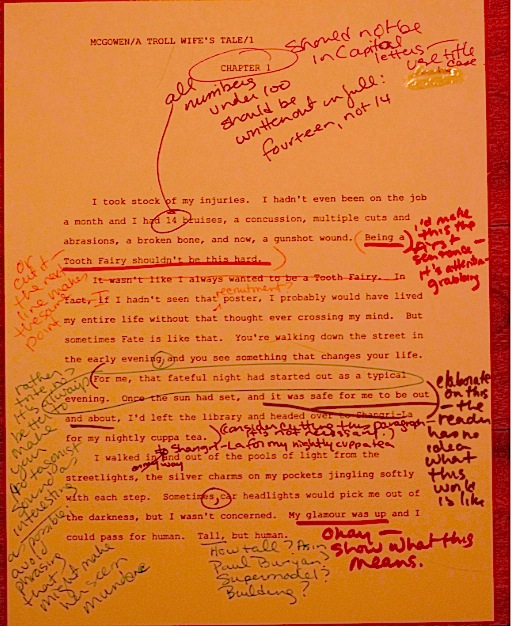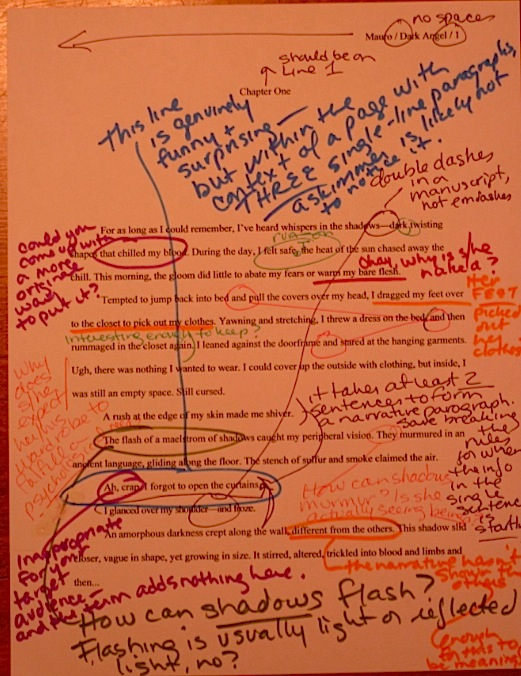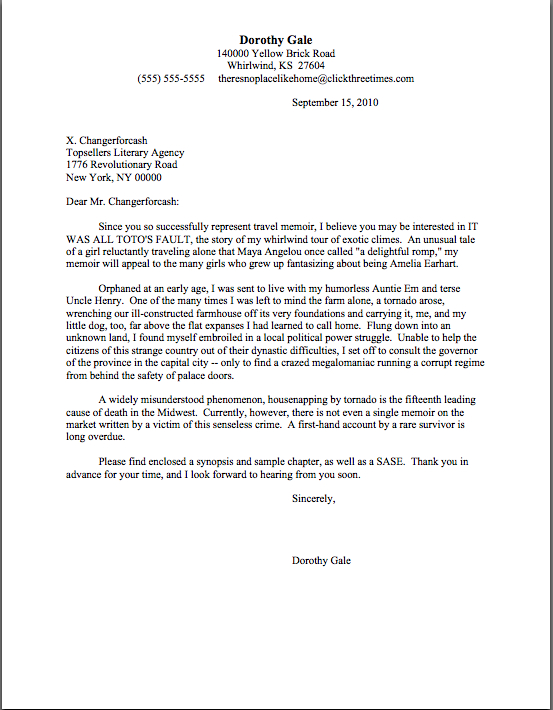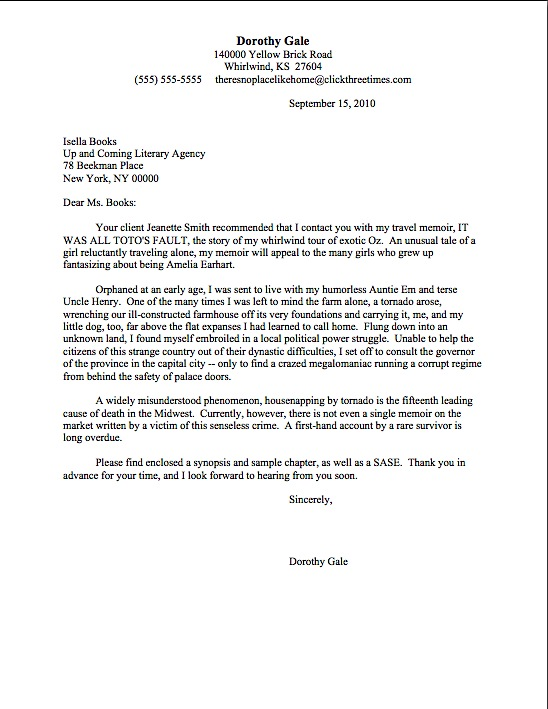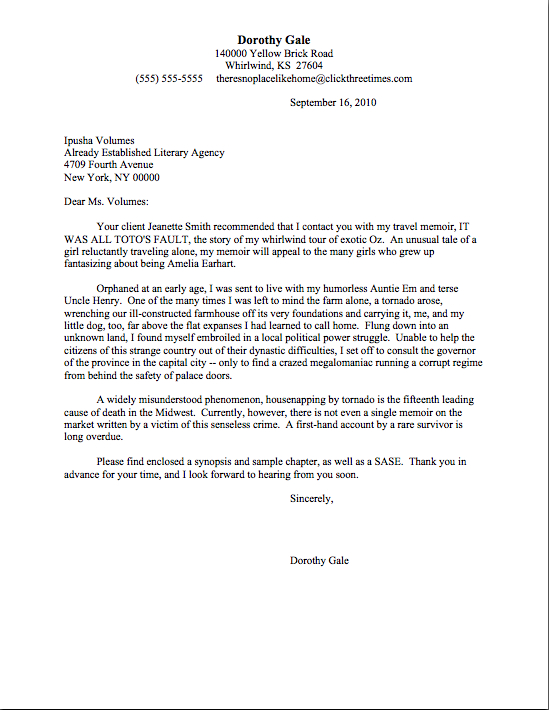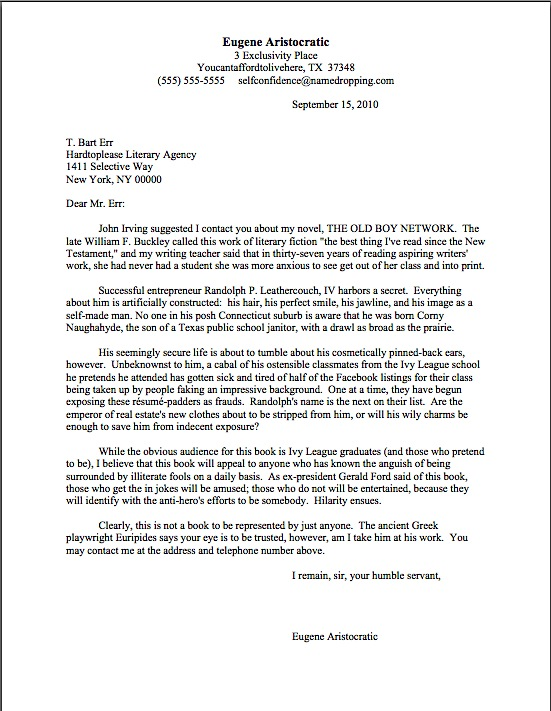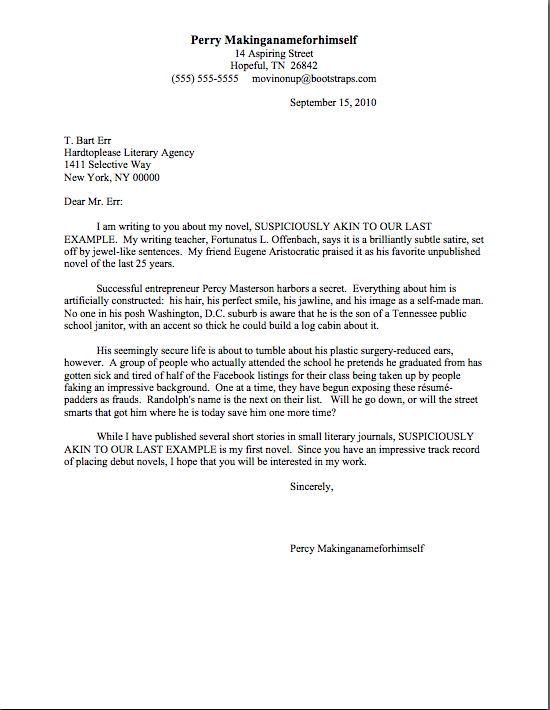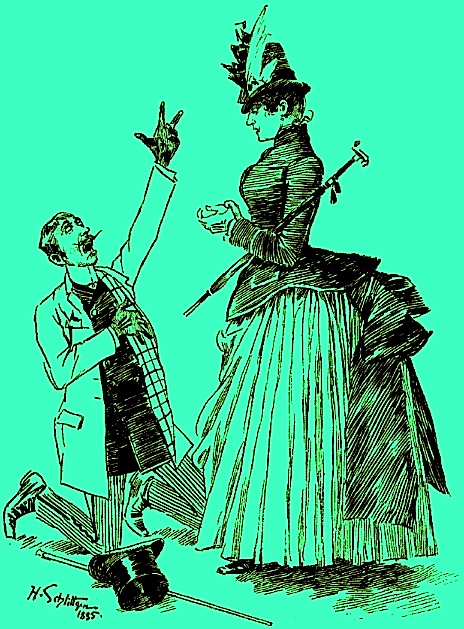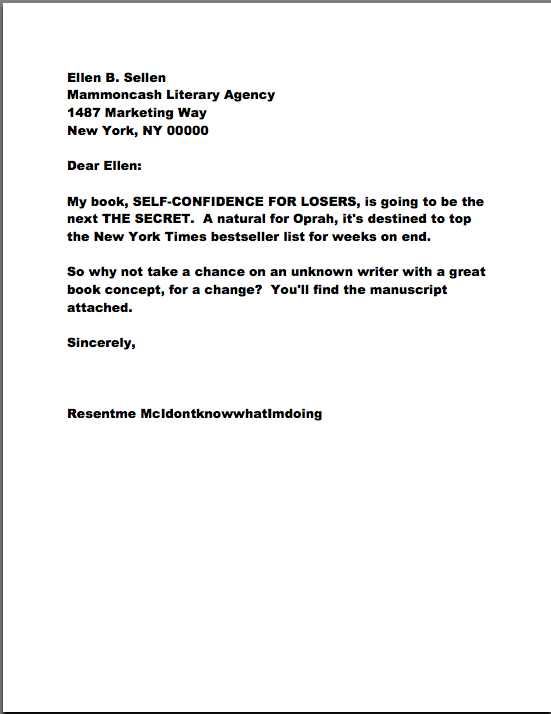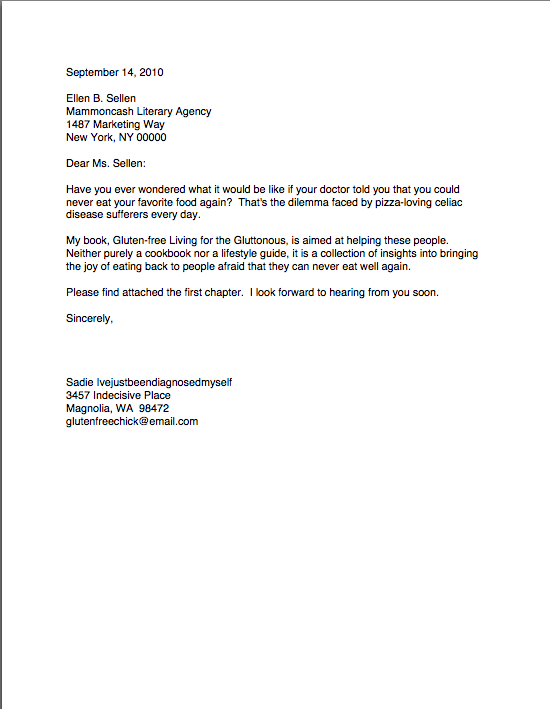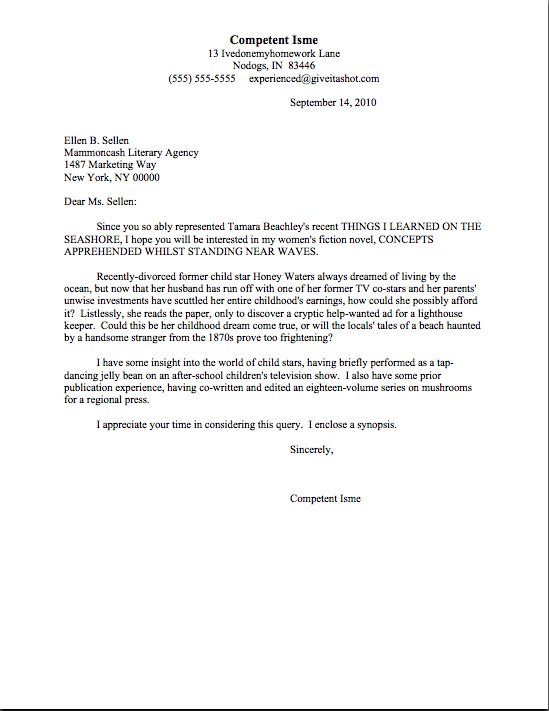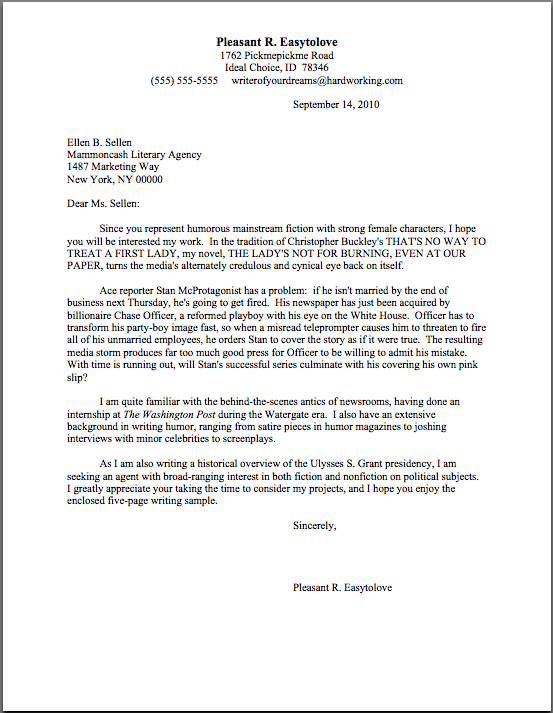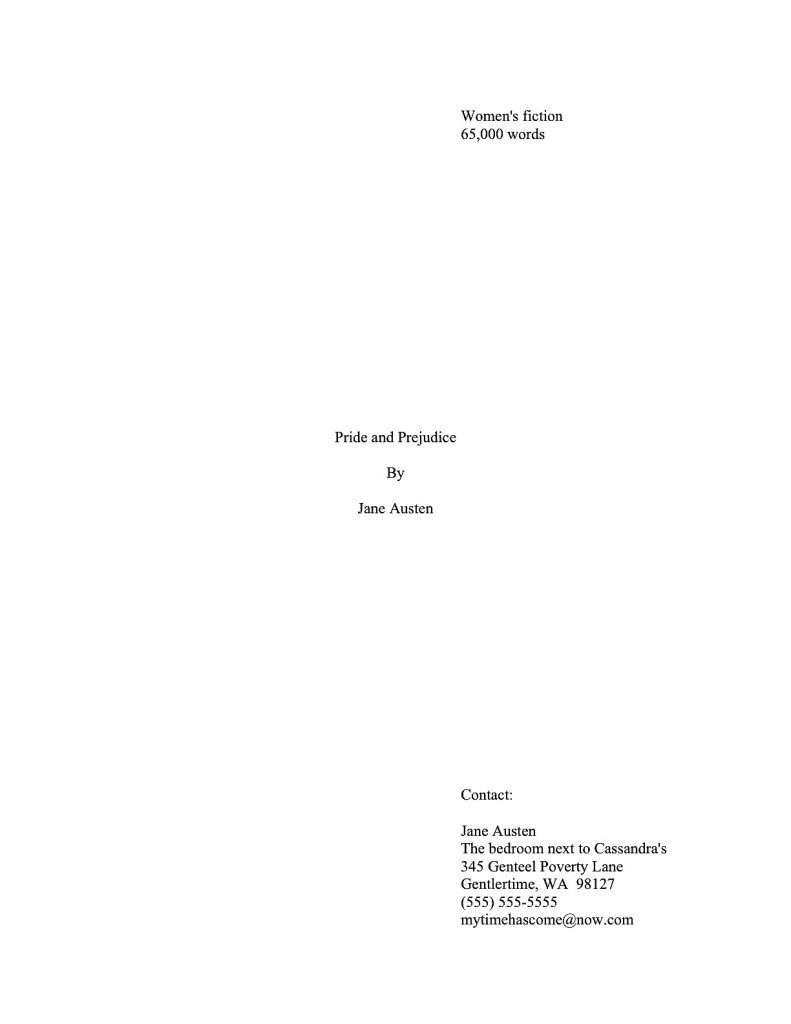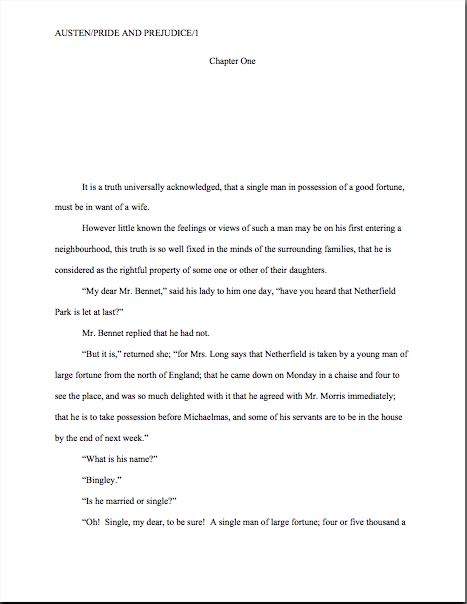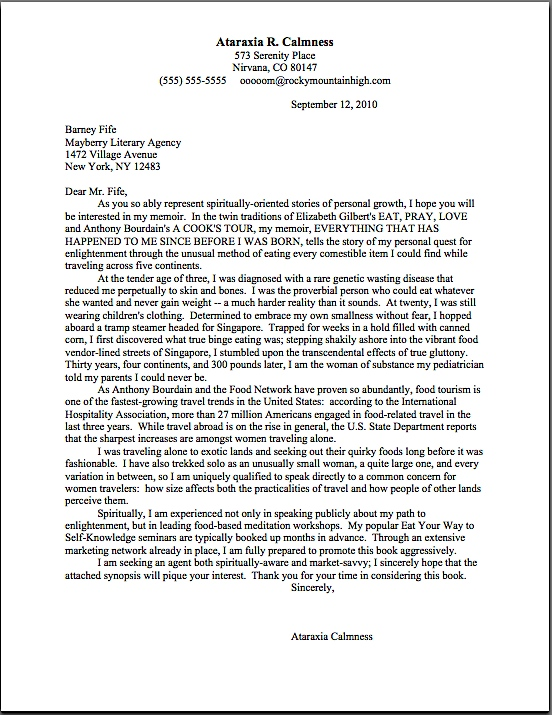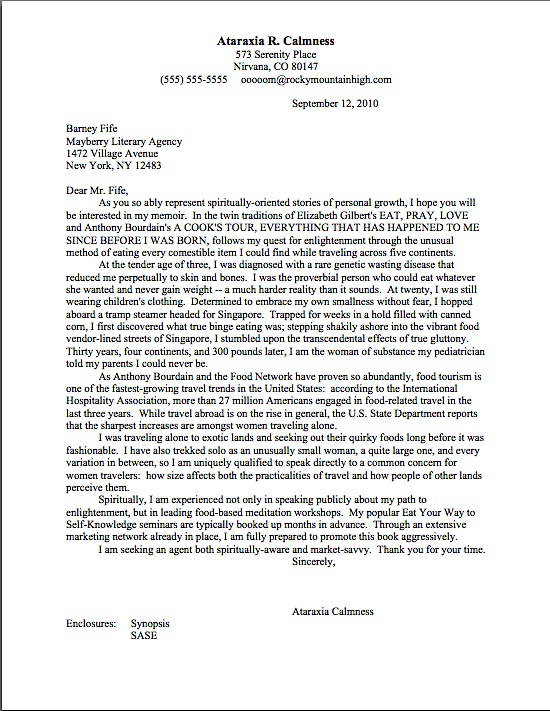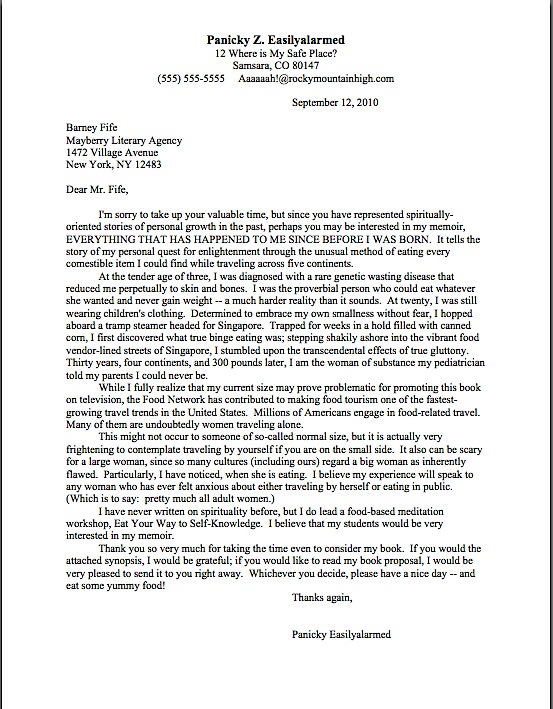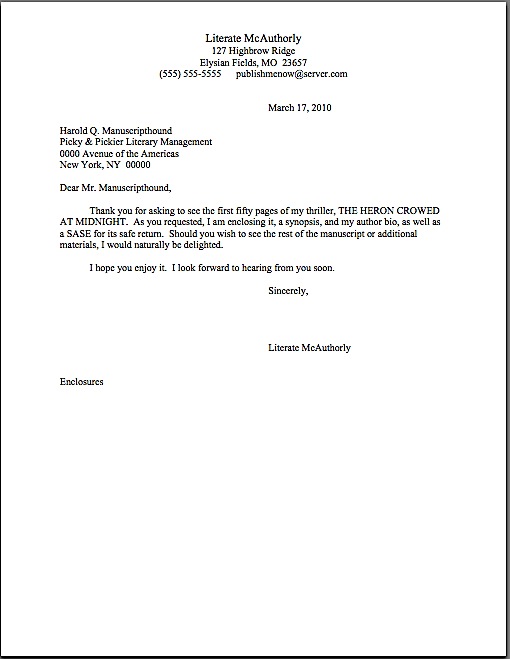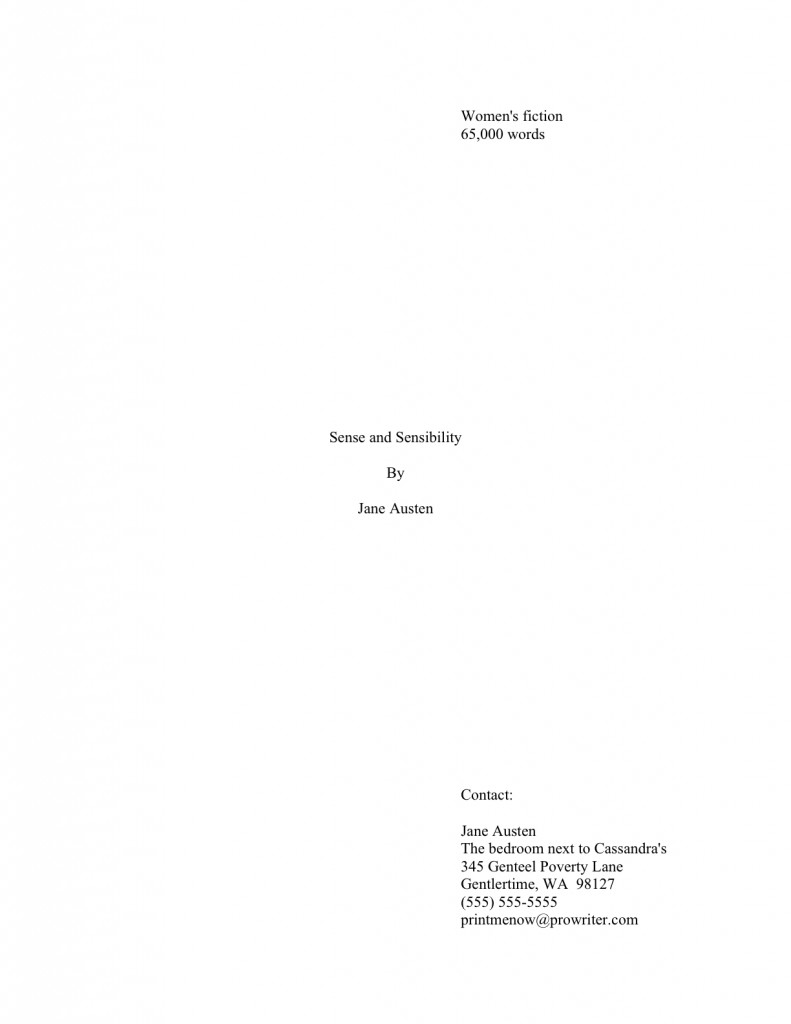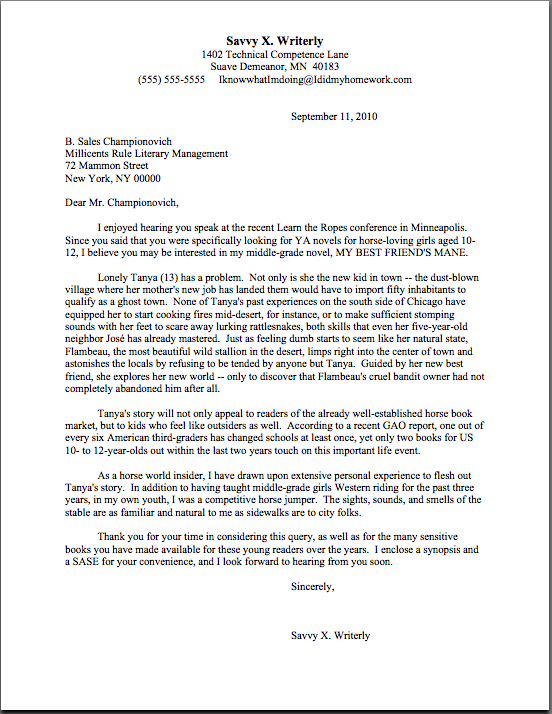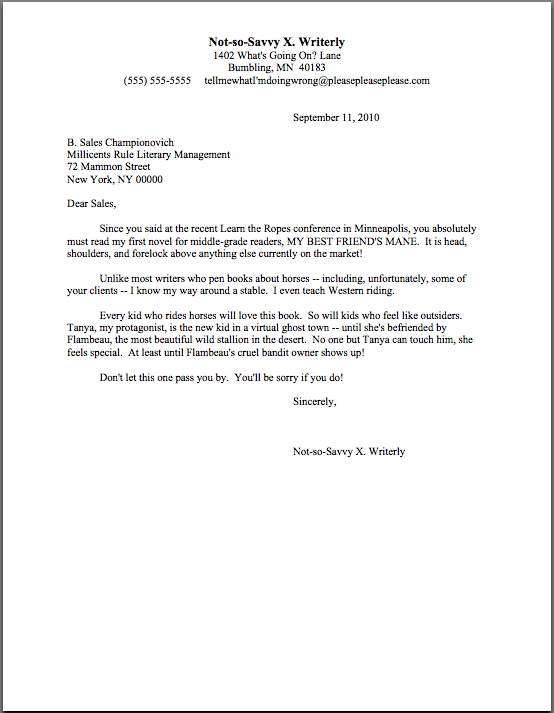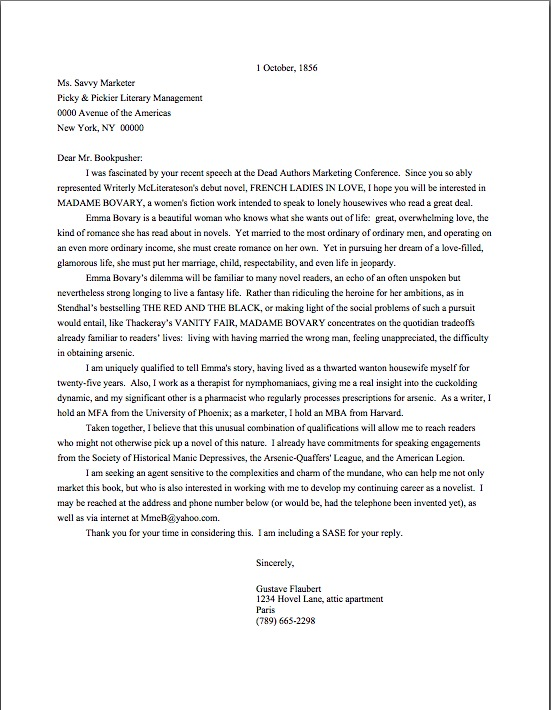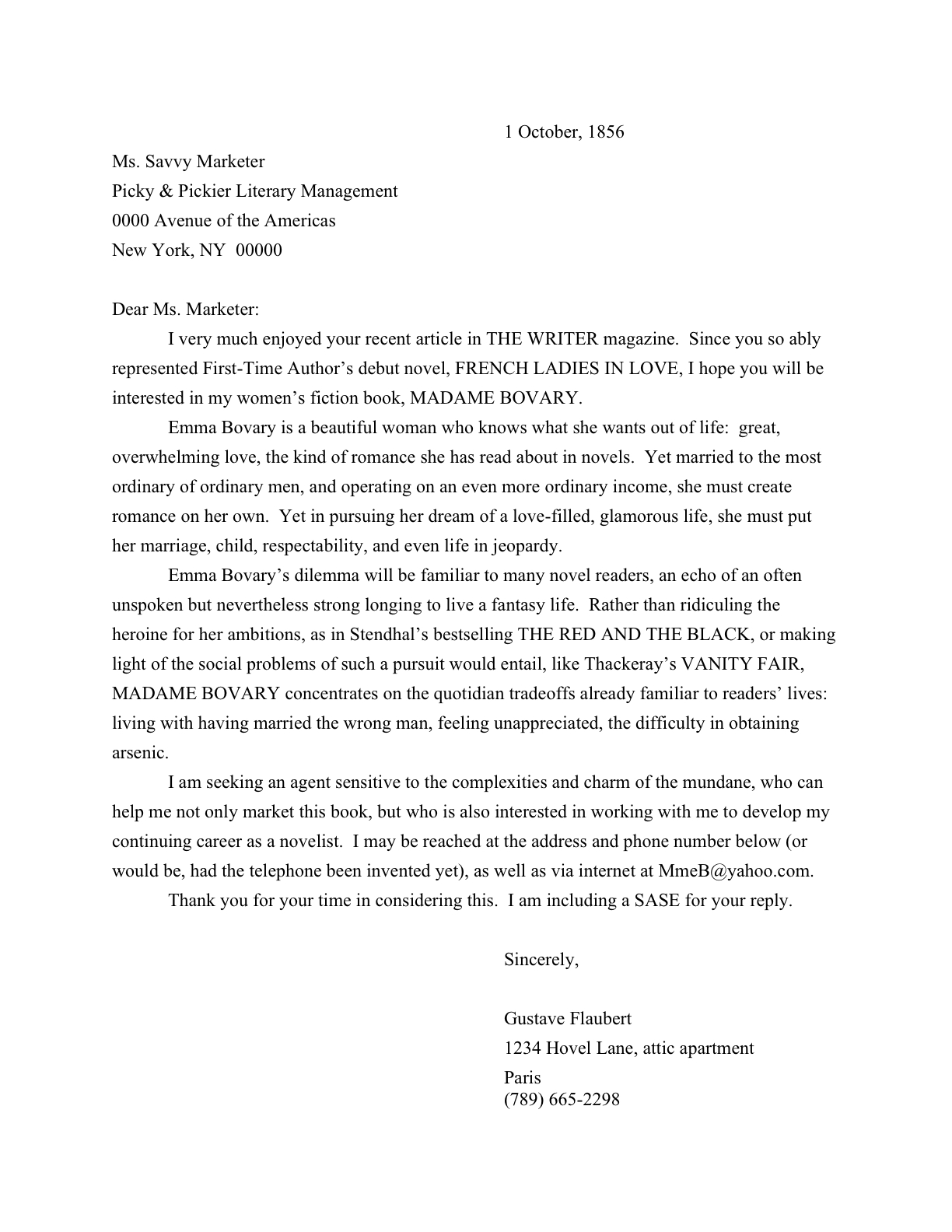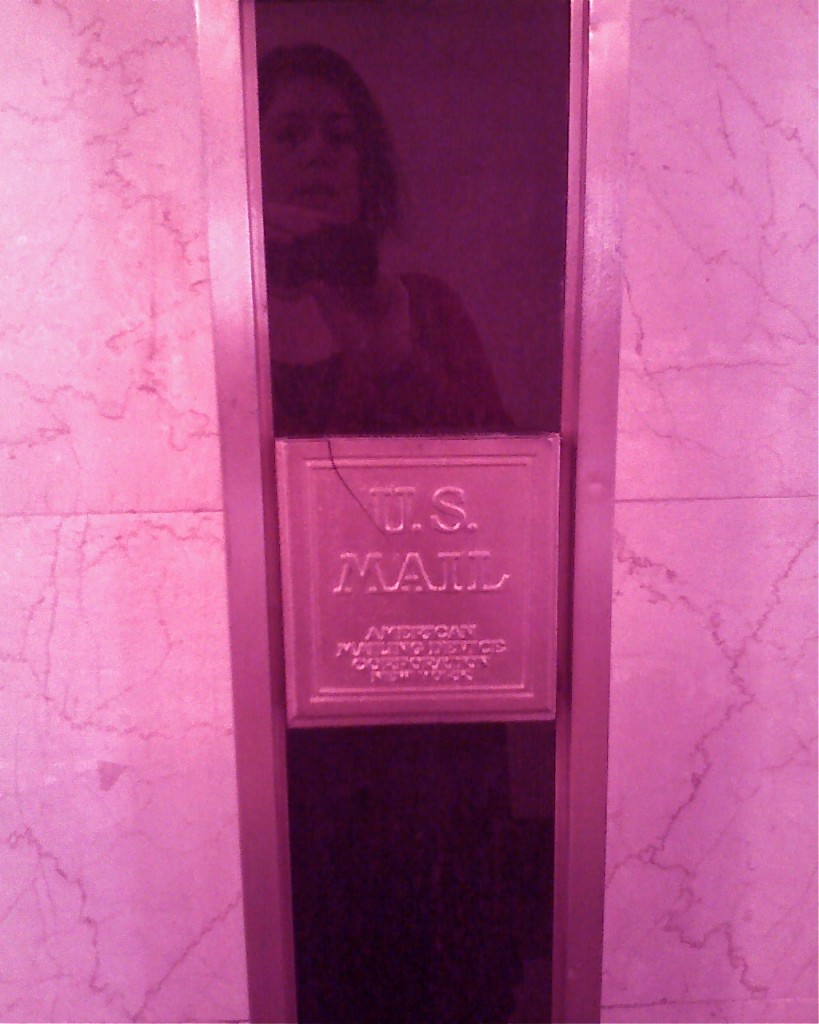
I open today’s post my favorite way: with an announcement of good news about a member of the Author! Author! community. Congratulations to Jay Kristoff, who has just signed a representation contract with Matt Bialer of Sanford J. Greenburger Associates. Kudos, Jay!
And another heaping helping of kudos to Jay for having not only thoughtfully documented his frankly pretty exciting querying and submission process on his blog, but also being generous enough to have posted his query letter there. It’s always helpful, I think, for aspiring writers to see what is working right now.
It can be done, folks: keep pressing forward. Keep that good news rolling in!
Speaking of writers being generous to those treading the early steps on the long and winding road to publication — how’s that for a graceful segue, eh? — in my last post, I suggested a surprisingly underused method for figuring out which ones might be open to your work: the straightforward expedient of going to author readings in your book category and asking the speaker who represents her. Later in the same posts, however, I may have dashed some hopes out there by pointing out several ways in which aspiring writers frequently bungle such approaches, in the hope of helping you avoid them.
How do I know about these faux pas? Because agents, editors, and established authors just love to trade stories about outrageous approaches, that’s how. Trust me, you don’t want to become famous that way.
Unfortunately, open-handed friendliness to aspiring writers is rare; in approaching most agencies, as well as most presses and even literary competitions, it helps to be aware that, to put it mildly, an overwhelming desire to smooth the path of the aspiring is most emphatically not the norm. There are just too many aspiring writers for too few representation, publication, and winner spots for each new aspirant to be greeted with open arms, personalized responses, and a big box of chocolates.
It’s nothing personal: Millicent the agency screener merely sees thousands of queries and dozens of submissions every month. It’s her job to narrow down the competitive field as quickly as possible. For the same reason, contest judges look for reasons to knock entries out of the running for top honors, and editors want to be wowed by the end of line 2.
It is in the aspiring writer’s best interest, then, to assume that any professional reader will be uncharitably nit-picky. I would assume that those of you who have been querying, submitting, and/or entering contests for a while — and certainly those who have been following the ‘Paloozas this autumn — are already aware of that. You may not, however, have embraced the course of action dictated by these harsh conditions.
Do consider embracing it, and hard, if you have any intention of approaching the agented — or, indeed, anyone affiliated with the publishing industry — for assistance: if you are a writer asking for individual attention and assistance, it behooves you to make it as easy as humanly possible for people to help you — and to make that relative ease apparent from your very first interaction with them.
Does that seem self-evident? In theory, perhaps, but it’s not often put into practice. As we saw in our recent spate of negative examples, from the established authors’ perspectives, the writers requesting help often seem to be working overtime to make it difficult to help them — and to demand as a right what is actually a gigantic favor. There’s a reason that every pro has three or four horror stories about rude aspiring writers: there’s never any shortage of ambitious souls who take one look at the patient, consistent, well-informed effort required to land an agent, assume that route is for suckers, and try to bypass the usual methods of approaching agents.
“But you have to help me!” these uncourteous souls insist after they have cornered established authors, agency employees, and/or editorial assistants at cocktail parties. “Agent X would be great for me, and I want to get published more than anything else in the world!”
That, my friends, is not the best way to get someone to help you. Minimizing the effort required to do you a good turn is.
There’s another reason that the hyper-pushy approach seldom works: every aspiring writer worth his salt wants to get published more than anything else in the world. The situation is hardly unique.
So why should someone in a position to provide an introduction to an agent pick one particular aspiring writer to assist, rather than any of the tens of thousands of others who would just love to jump the queue? Three reasons, typically, and simple ones: because that writer asked, because she did it politely — and because she had taken solid, practical steps render it as simple as possible for her designated helper to give her a leg up.
You would be astonished — at least, I hope you would — at how seldom hello, stranger, would you help me get my work in front of your agent’s eyes? requests meet even one of those criteria, much less all three. Here are a couple of ways that writers often fumble the approach without realizing it.
Misguided approach 1: Pablo covets established author Pauline’s agent, Percy, so her has gone about seeking a referral in a sensible, respectful manner: he read her work first, was able to give her a charming, well thought-out compliment on her latest book, and established a cordial relationship before asking for any favors at all. Eventually, Pauline asks to read some of Pablo’s work. It’s very good, so enthused, she sends him an e-mail saying that she is willing to recommend him to Percy.
Success, right? Not so fast.
“That’s marvelous,” Pablo writes back immediately. “Send Percy the manuscript I gave you, and let me know what he says.”
He is astonished never to hear from Pauline again. Nor, to his shock, does he ever hear from Percy at all. “How rude,” he mutters. “If Percy didn’t like the manuscript, he could at least have made the effort to tell me so.
Did you catch Pablo’s tactical error — and his misinterpretation of subsequent events? No? Okay, let’s consider: does Pablo have any legitimate reason to believe Percy even saw his manuscript, much less rejected it? If the answer is no on both counts, Pauline is the one who did not follow through here, not Percy. That’s an important distinction, since Pablo could conceivably still query Percy independently if he has not already rejected the manuscript, right?
So it is in Pablo’s best interest not to waste his energy resenting Percy. Instead, he should ask himself: did I do anything that might have made Pauline change her mind about helping me?
Glad you asked, Pablo: you certainly did. You violated the golden rule of assistance-seeking: you made it apparent that it would be difficult to help you.
How so? Pablo assumed that because Pauline was willing to help him at all, she would automatically be eager to put in a great deal of leg work on his behalf, too. Suddenly finding herself expected to perform a massive favor when she had merely offered to do a smallish one, Pauline froze and backed off.
This kind of authorial freeze happens all the time — a pity, since it is easily preventable with a bit of forethought. And just a bit of expectation-modification.
What scared Pauline off was Pablo’s sudden revelation that he expected more assistance than she was in fact willing to give — and far more than she had actually offered. That must have seemed strange to her, because what she was willing to do was potentially so helpful: give him a personal recommendation to her agent, something few previously unpublished writers ever garner. So In her mind, her contribution to his querying success would consist of allowing Pablo’s to open his query letter to Percy with Your client Pauline has read my manuscript and recommended that I contact you about it…
That’s it. It may not sound like an immense favor, but as it would place Pablo’s work in a different pile than every other query that came into Percy’s agency, it could potentially have made an enormous difference to Pablo’s querying success. In fact, until fairly recently, such a query would have resulted in what is known as a courtesy read, regardless of whether the work in question was likely to interest Percy or not. Since the economy tightened, however, agents are not granting courtesy reads to their clients’ friends as often as in days of yore — yet another reason, if you still require one, to be as polite as possible in approaching an author for a recommendation. An author whose agent habitually refuses courtesy reads is placed in quite a pickle by such requests.
Pablo didn’t think about any of that: all he heard was that she was willing to help him. In his mind, she had just volunteered to take all of the effort and chagrin of submission off his shoulders.
That was a completely unrealistic expectation. If she felt very enthusiastic indeed, she might conceivably have called or e-mailed Percy, to let him know that Pablo’s work was coming, but that would be the absolute limit to what an established writer like Pauline would do for a new acquaintance. She could potentially offer to do more down the line, but realistically, Pablo should have accepted this much with gratitude and, taking the initiative to promote his own work, followed through himself.
Instead — and herein lay his biggest mistake — he not only appalled her by ratcheting up his expectations, but insulted her by telling her so. In brushing aside her actual offer in a way that inadvertently came across as dismissive, he pushed 100% of the follow-up responsibility onto Pauline, essentially expecting her to be his unpaid agent, pitching his work to her agent.
Think about it from Pauline’s point of view: why on earth would she do this? Even if Pablo is a brilliant writer, the utmost personal benefit she could possibly derive from the transaction is the glow of having done a good deed and Pablo’s gratitude. Perhaps she could look forward to a line on a future acknowledgement page. But if Pablo begins the process by appearing ungrateful, why should she lift single well-manicured finger to help him at all, much less put her own credibility with her agent on the line to promote his work?
Yet we can’t help but feel a bit sorry for Pablo, can we? He botched an opportunity for which many another aspiring writer would gladly have given his pinkie toes. From am aspiring writer’s point of view, he really made only one small slip, and that inadvertent.
So what should he have done instead? His response to Pauline’s offer should have been all about her, not him: “That’s fabulous, Pauline; thank you so much. How would you like me to proceed?”
While we could debate from now until Doomsday whether the punishment fit the crime here, the overall message is clear: when you want someone to do you a favor, your best strategy is to minimize, not maximize, the amount of effort your patron will need to invest to assist you. Don’t simply assume it’s understood — ask questions about how you can make it less trouble to help you.
I’m not talking about tossing off a 5-page demand that the pro explain the entire process to you; I’m merely suggesting that you ask a question or two to clarify precisely what your potential helper is willing to do — and what you would need to do in order to support her efforts. When in doubt, you can always fall back on the most basic, most welcome question of all: “What can I do to make helping me easier for you?”
That’s a bit counter-intuitive, I know: ostensibly, this process is about others helping you, not you helping others. But trust me on this one: the simpler you make it to assist you, the more likely you are to receive assistance.
Adopting that attitude toward helping hands will, I promise you, make you more welcome in virtually any industry gathering, both now and in years to come. Why? Because it will make you a better addition to the professional writers’ community.
I can feel some of you timid souls trembling from here. “But Anne,” you wail, searching the area around your feet frantically for any toes upon which you might have accidentally tread, “I’m terrified that I’ll do something wrong, since I’m going to be walking into a situation where I don’t know anybody concerned very well. Is it to much to ask that my friend in high places would tell me what to do? I mean, seriously, isn’t this all Pauline’s fault for not being clearer with Pablo up front?”
Those are loaded questions, timid tremblers: from the aspiring writer’s side of the equation, it’s understandable that you might want guidance. But yes, it is too much to ask that a busy relative stranger — or even an actual friend who has already landed an agent — would drop whatever she typically does with her time (like, say, writing) in order to devote energy to promoting your career. You would be flabbergasted if the bigwig said, “Okay, I’ll help you, but only if you agree to spend five hours this week standing in a bookstore, hawking my latest release,” wouldn’t you?
So if Pauline neglected to send Pablo a bullet-pointed list of directions, it’s understandable, is it not? Ditto if she was unwilling to instigate an argument by e-mailing someone who has already imposed upon her to explain that he should impose upon her a little less.
She might also have heard a horror story or two from a fellow author about the dangers of being nice enough to cater to the sometimes quite unreasonable expectations of those looking to break into the biz. Take, for instance, the difficulties her friend Tremaine ran into when he was trying to help a friend of Pauline’s — a debacle for which Pauline most likely still apologizing, years later.
Misguided approach 2: Tanya met agented author Tremaine through networking: her college roommate Pauline, an aspiring writer who had not yet found an agent, had taken a seminar with him at a writers’ conference. Pauline raved about his trenchant insights so much that when Tanya had her first novel ready to query, soliciting his advice seemed only natural.
She shot off a polite e-mail to him, explaining that she was a friend of Pauline’s. Would he have some time to give her the benefit of his years of experience, please?
Because Tanya seemed to be nice and was complimentary about his books, Tremaine was happy to answer a few of her questions via e-mail; it amused him to think that someone who had taken a half-day seminar with him five years ago would remember what he’d said enough to recommend him to a friend. After the first couple of exchanges, however, he began deliberately slowing his responses to Tanya’s questions, because she started to e-mail him every day. Each time, her messages got longer — and more personal.
Tremaine recognized the pattern: this has happened before. Clearly, Tanya had begun thinking of their exchanges as a burgeoning friendship, rather than what it actually was, an author being nice to a reader.
One sunny Tuesday, Tremaine spotted yet another e-mail from Tanya in his inbox. Sighing, he left it to answer another day. On Friday, he opened it, and was startled to find a cheerful note from Tanya, telling him she has already sent a query to his agent, Trevor, using Tremaine’s name as a reference. Would Tremaine mind following up with Trevor as soon as possible, to confirm the recommendation and try to speed up the process?
Cursing, he vows never to be nice to a fan again. But what on earth is he going to tell Trevor?
I want to discuss this sorry tale of mismatched expectations on two levels: first, by figuring out what Tanya did wrong, and second, by examining just how much trouble her acting upon her misconceptions has created for her mentor. Not to mention the poor friend whose name she used to get to the mentor in the first place.
I would hope that her central faux pas is apparent to all of you, but just in case, let me be absolutely clear: it is always the aspiring writer’s responsibility to ask the more established one for permission to use his name in advance, not tell him about it afterward. And while it is possible that Tanya did ask, but Tremaine overlooked her question due to the sheer volume of her e-mails, it is never legitimate to assume that silence equals consent.
A good rule of thumb in any context, actually.
Compared to that egregious boundary-busting, Tanya’s other sins pale in comparison. She rushed Tremaine into a friendship, interpreting his being nice enough to answer a few questions as an invitation to increased intimacy — and did it in such a way that he probably will cringe the next time he hears Pauline’s name. People seldom talk about this, but the flip side of networking is that being the connection between a polite person and a rude one makes the connector look bad, invariably. Since Tanya knew that Pauline was also an aspiring writer, she owed it to her friend to be on her best possible behavior when approaching Tremaine.
What happened to Tremaine happens to famous writers all the time, incidentally: unfortunately, there are plenty of aspiring writers out there who have mistaken momentary professional kindness to a fan for the beginning of a lifetime friendship. And friends help one another, right?
Again, let’s phrase it as an axiom: before you use a recommender’s name, make absolutely sure that you have the recommender’s permission to do so. Yu may make an honest mistake, but because some unscrupulous folks have used this leg-up technique on purpose, the knee-jerk assumption on the agent’s end is almost certainly going to be that there was no misunderstanding at all. Just misappropriation.
It’s just not worth the risk.
A graceful way to confirm: if you are meeting in person, ask the recommender to write the agent’s name on a handy piece of paper for you. Then ask, “And it’s really okay for me to say that you sent me?” If said in a pleased, wondering tone, this will be perceived as a compliment — “Wow — YOU’re willing to recommend me?” — rather than doubting the author’s word.
Via e-mail, it’s even easier: if the language of the offer has been at all ambiguous, e-mail the recommender, saying that you are going to contact the agent. But make sure, unlike Tanya, you do it BEFORE you, well, contact the agent in question.
The overarching moral: it is always better to ask a follow-up question or two than to assume that someone intends to help you more than his words have stated specifically. If the recommender is indeed offering to help, the question is merely considerate; if not, it’s far better you know about it before you act, right?
Regardless of the outcome, remember to express gratitude for the help you did get. And don’t treat the granting of one favor as permission to ask for more — or, as Tanya did, to escalate the imposition.
Over and above the ethics of the situation, Tanya’s put Tremaine in a tough situation here, hasn’t she? On one level, she has used his name without his permission, and he would be well within his rights to pick up the phone and tell Trevor so, killing her submission’s chances.
On the other hand, doing so would make him look bad in the eyes of his agent: if he confesses to having been used, the next time Tremaine actually does want to recommend an aspiring writer, he will have to pass the manuscript along to Trevor personally, to avoid the possibility of another misappropriation of his name.
Which, as we have seen in Pauline’s struggles with Pablo will be a whole lot of work. Enough so that both Tanya and Pablo may reasonably expect to be the subjects of Tremaine and Pauline’s cocktail party horror stories for years to come.
Yet another very good strategic reason that you will want to bend over backwards to be easy to help: the publishing world is, as some of you may have already noticed, an arena where a poor reputation gets one talked about far more than a good one. You really, really do not want to be the subject of the hilarious story an established writer — or, still worse, an agent — is telling as a cautionary take at writers’ conferences this season.
But that does not mean you should be shaking in your boots, terrified that you will inadvertently say the wrong thing. The truly good stories tend not to be about aspiring writers who breach minor points of etiquette without knowing it, but those who come up with real whoppers.
Like the person who told a certain male agent of my acquaintance during a pitch meeting that he couldn’t possibly understand women’s fiction well enough to represent it. When he tried to tell her that he does, in fact, sell women’s fiction all the time, she implied that he was lying. She gave every evidence of being astonished when he said, “Then maybe you should not be pitching to me.”
Now that’s a good cocktail party story.
Seriously, when an author recommends a writer to her agent, she isn’t merely recommending the writing, but the person as well. As with any recommendation, the recommendee’s poor behavior tends to reflect poorly upon the recommender. And even if it didn’t, no one wants to be the client of whom the agent says at parties, “Oh, you would not believe what the writer she sent me did!”
Building a reputation for being easy to work with — the standard euphemism for being cooperative, following directions well, not prone to gratuitous temper tantrums, and knowing a bit about how the industry works going into a relationship with an agent or editor — carries legitimate value in agencies and publishing houses. Cultivate it. You really do want your agent to be able to say with a clear conscience, “Oh, she’s a peach. You’ll love working with her.”
I look forward to hearing that about you at a cocktail party, in fact. Keep up the good work!

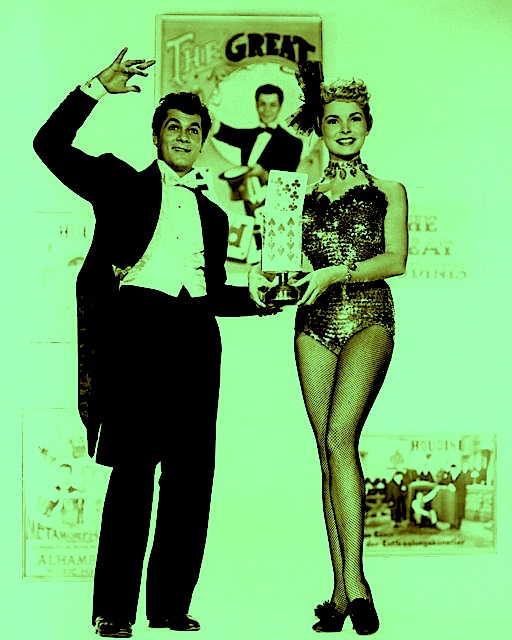

 Unless an agency states SPECIFICALLY in its agency guide listing or on its website that it insists upon an exclusive for any submission it considers, these days, it is assumed that a market-savvy writer will be sending out simultaneous queries.
Unless an agency states SPECIFICALLY in its agency guide listing or on its website that it insists upon an exclusive for any submission it considers, these days, it is assumed that a market-savvy writer will be sending out simultaneous queries. 
